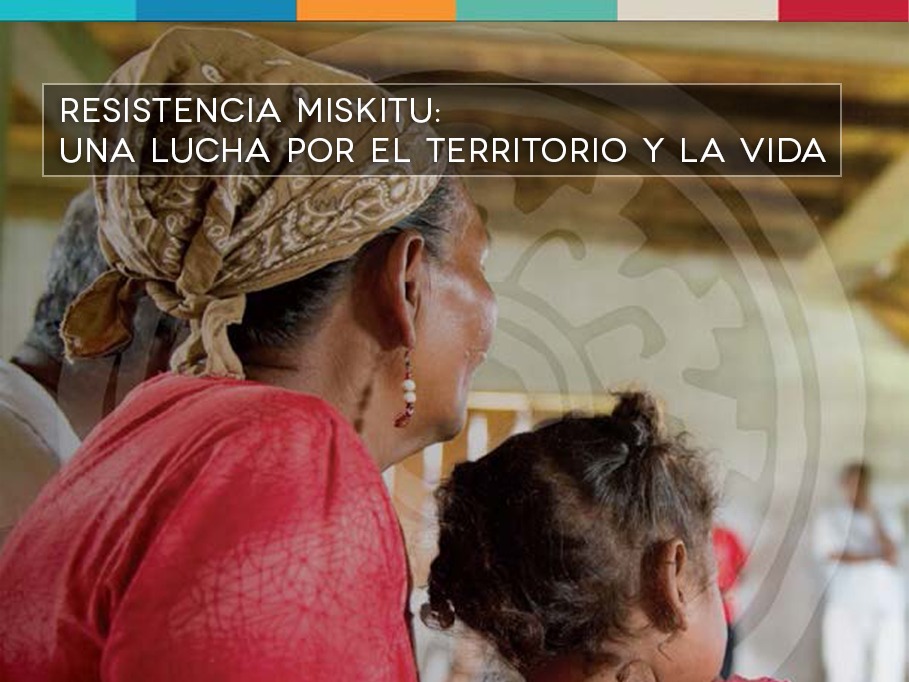






San José, August 13, 2019.- The damage caused by the invasion of the Miskitu territory and the lack of State action to remedy it could entail the communities’ complete disappearance. This is evidenced in the recent report released by the Center for Justice and International Law (CEJIL) titled “Miskitu Resistance: A Fight for Territory and Life”.
The report displays that the lack of State action to prevent and sanction the attacks of the settlers, or invaders of indigenous communities’ territory, has created an atmosphere of impunity. Thus, aggressions are maintained and the communities find themselves in a grave situation of vulnerability and abandonment.
“At CEJIL, we look to visibilize these issues and their severity, so that the State of Nicaragua give a way out as soon as possible. It is eminent that the State give a response; on the contrary, the indigenous Miskitu culture faces an irreversible risk of being extinguished” expressed Marcela Martino, Sub-Director of the organization which accompanies the demands of the indigenous community before the Inter-American System of Human Rights.
“Our collective resistance is ancestral, as a Miskitu without land is not a Miskitu. We come from the land and to the land we return. That is why it’s important to count on our territory. It has a sacred value for our life, identity, and culture”, expressed Constantino Rommel, from the Francia Sirpi community located north of the country.
In this crisis, which has been dragging on for years, dozens of people have been murdered, kidnapped, and physically and sexually assaulted. Likewise, it has generated an internal displacement of hundreds of people. The forcibly displaced have abandoned their territory and community to keep themselves safe from threats enacted by settlers who take territory by force for the exploitation of minerals, as well as, for logging, monoculture, and large-scale cattle farming.
“We have sought that the State solve this situation in different ways, and they still pay no attention to our problem. Meanwhile, the people of our communities face famine, violence, displacement. The land for us is not only a source of food, but is also sacred territory, from which our spirituality emanates, “expressed Lottie Cunningham, president of the Center for Justice and Human Rights of the Atlantic Coast of Nicaragua (CEJUDHCAN), an organization that represents the Miskitu Indigenous peoples in their demands nationally and internationally.
The report, presented alongside the Nicaraguan community that currently finds itself in exile, was created through years of follow-up in the region and interviews with the populations in the territories of risk.
Specifically, CEJIL requires Nicaragua to comply with the measures ordered by international bodies and to begin, as soon as possible, the process of reorganizing indigenous territories, prioritizing the transfer of the settlers to their places of origin.
Furthermore, the report also indicates the need to adopt all the necessary measures to ensure the return of displaced families to their communities of origin and ensure their immediate access to adequate services to exercise their rights in health, education, drinking water, food and housing.
At the same time, the report requests the State of Nicaragua to investigate, prosecute and sanction thoroughly and impartially all allegations of human rights violations committed against the Miskitu communities.
Help us continue this critical and urgent work with a donation!
DONATE NOW